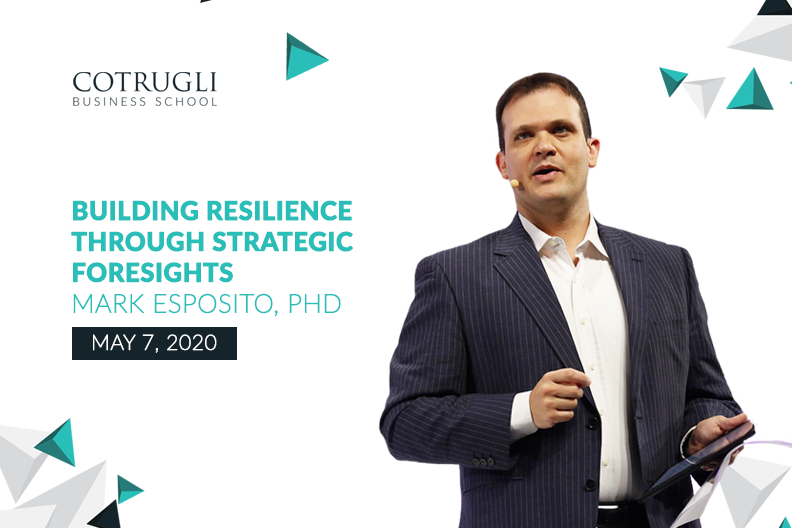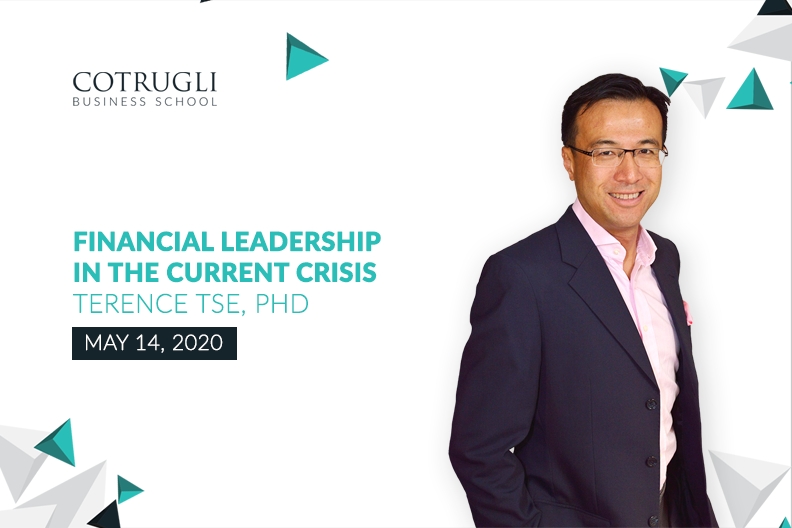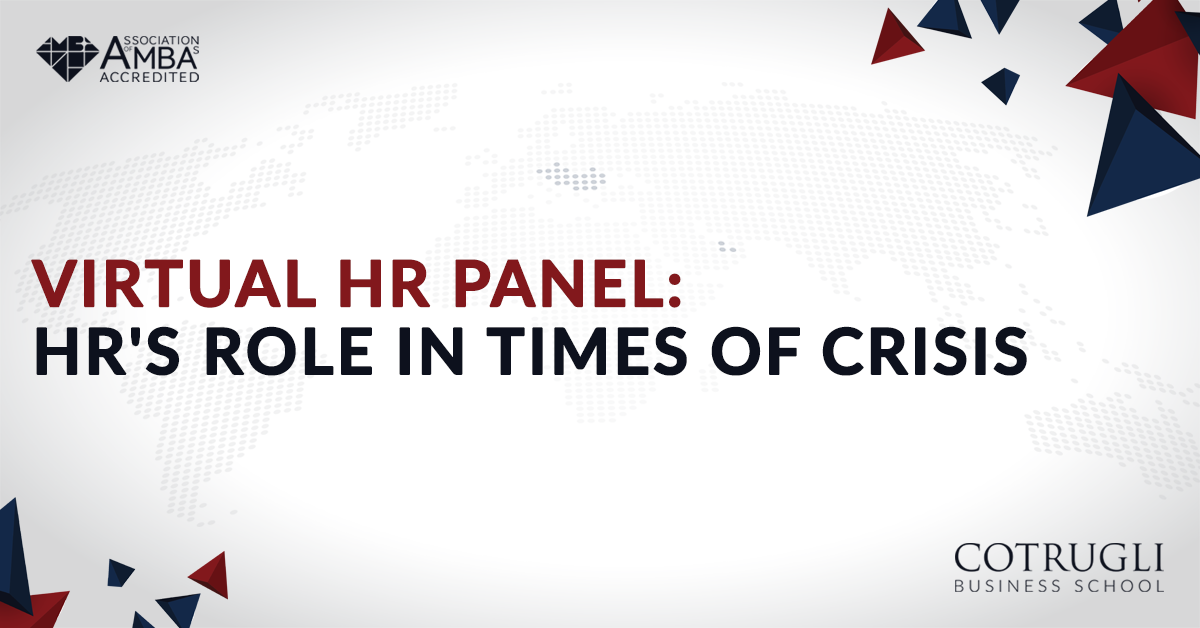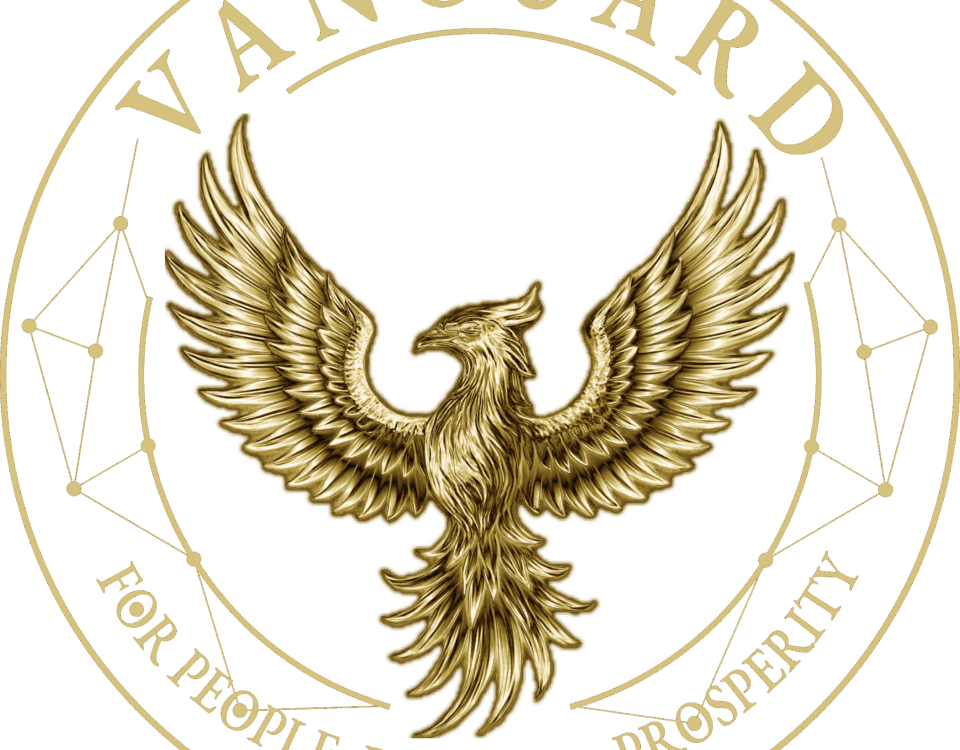HR in Crisis: Balancing Well-Being and Sustainability
In times of crisis, HR plays a crucial role in protecting employee well-being while ensuring organizational sustainability. This dual responsibility was the core theme of a virtual panel organized by COTRUGLI Business School on April 30, 2020. The discussion brought together HR leaders from key regional industries, who shared valuable firsthand insights into their challenges and strategies.
Industry Challenges: From Oil to Hospitality
Zdravka Demeter Bubalo (HR SVP at MOL Group) and Alisa Evsina (HR Director at NIS) addressed the oil and gas sector’s unprecedented crisis—facing the sharpest oil price drop since 1998, a 30–50% demand reduction, and mounting liquidity concerns.
Mojca Domiter (Atlantic Grupa) and Gregor Rajšp (Pivovarna Laško Union) highlighted that FMCG is not immune. The abrupt demand collapse (up to 70%) due to HoReCa closures and disrupted supply chains strained operations severely.
In the hospitality sector, Žana Zeković (Regent Porto Montenegro) emphasized that the summer season remains uncertain. If it does occur, it will be delayed and managed under new guidelines.
HR Realities Across Banking and Job Markets
Laura Orlić, an experienced HR executive in finance, identified liquidity management and moratorium enforcement as key challenges in the financial sector. On the other hand, Sonja Ćetković (Poslovi Infostud) shared that although job market activity declined globally, sectors like IT, construction, engineering, and pharma remain resilient. Encouragingly, job ads and candidate activity are starting to rebound.
A Shared Priority: Employee Safety and Engagement
All panelists agreed that the top HR priority is ensuring employee safety. Gregor shared that their company adopted clear safety principles, avoided layoffs, and emphasized daily transparent communication to keep morale and continuity intact.
Zdravka described how MOL rapidly shifted to new business models. Their HR team trained managers in crisis communication and time management. They also upskilled staff to support the rollout of a new disinfection product line.
At Regent, Žana introduced an online employee community to maintain engagement. They’re also focusing on online learning and development to prepare staff for future demands.
Adapting Through Culture, Learning, and Flexibility
At NIS, employee rotation helps retain talent and adapt to fluctuating demands. Laura stressed the value of peer-to-peer learning, where employees share tutorials and solutions internally.
Mojca credited strong company culture as key to navigating the early weeks of the crisis. Atlantic Grupa also reinforced “care” as a core value. For them, culture and compassion guide decisions in uncertain times.
Sonja acknowledged a likely rise in unemployment but added that adaptability and upskilling will help people re-enter the job market more easily.
Final Takeaways: Learn, Communicate, Adapt
This panel offered crucial insight into how companies are weathering the storm. The path forward requires a mix of cost-efficiency, investment in people, and creativity. Above all, learning and communication are essential. To be prepared for the future, companies and individuals must stay flexible, agile, and ready to evolve.







